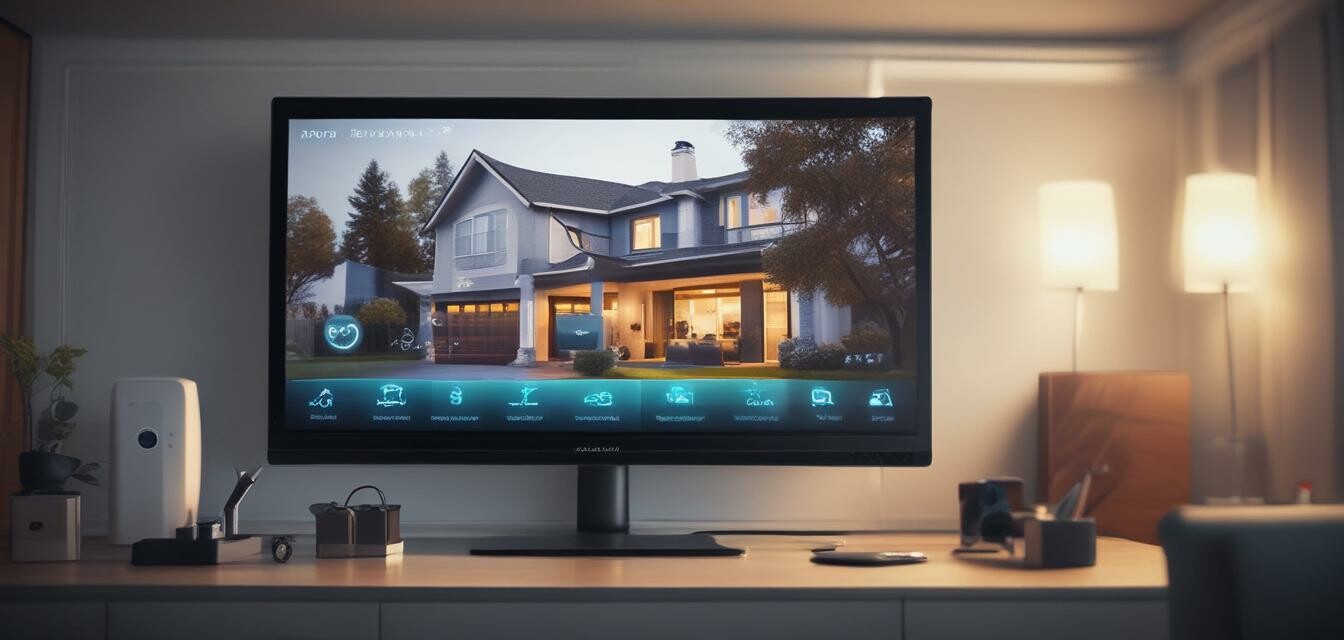
The growing importance of data privacy in smart security
- The rise of smart home technologies is accompanied by increasing concerns over data privacy.
- Consumers are becoming more aware of their digital footprints and the data collected by smart devices.
- Smart security systems need to enhance data protection to retain user trust.
- Innovation in privacy-focused features is necessary for the advancement of smart security technology.
- Regulations surrounding data privacy are influencing market trends within the smart security niche.
As we step further into 2025, the landscape of smart home security is rapidly evolving. With the advancement of technology, concerns over data privacy are taking center stage. Homeowners are not only interested in how these systems enhance their security but also in how they collect, store, and utilize their personal information. This article examines the relationship between data privacy and the growth of smart security solutions.
The rise of smart home security technologies
The popularity of smart home technologies has soared, with systems offering capabilities like remote monitoring, automation, and real-time alerts. However, this rise brings with it a significant concern: the data these systems gather. From security cameras to motion sensors, smart devices constantly collect vast amounts of personal data. Here’s a quick overview of the notable advancements:
| Smart Technology | Functionality | Data Collected |
|---|---|---|
| Smart Cameras | Surveillance and monitoring | Video footage, location data |
| Motion Sensors | Detect movement | Time of activity, location |
| Smart Locks | Remote access control | Entry logs, user data |
| Alarm Systems | Intrusion detection | Alert history, sensor status |
Impact of data privacy concerns
With the rise in cyber threats and data breaches, homeowners are becoming increasingly cautious. They want assurance that their personal information is secure. This has led to the demand for stronger data privacy measures within smart security systems. As a manufacturer or service provider, it’s essential to understand these concerns and respond appropriately.
Consumer awareness and trust
Trust is foundational in the relationship between consumers and technology. As individuals become more informed about their digital privacy, they are making purchasing decisions based on privacy features. This includes encrypted communications, secure cloud storage, and transparency in data usage policies.
“Data is the new oil, but like oil, it needs refined handling to avoid spills.”
Key privacy features to consider
For smart home security systems to maintain consumer trust, they must incorporate robust data protections. Here are some critical features that can enhance privacy:
- Encryption: End-to-end encryption ensures that data is secure while in transmission.
- User Control: Allowing users to manage their data and understand settings promotes transparency.
- Limited Data Retention: Only keeping data as long as necessary minimizes risks.
- Regular Updates: Ongoing software updates help patch vulnerabilities.
Shaping market trends through regulation
Government regulations regarding data privacy continue to shape the smart home industry. Understanding these regulations is crucial for manufacturers who wish to ensure compliance while also gaining a competitive edge. By linking privacy compliance with enhanced functionality, brands can position themselves more favorably in the market.
Emerging regulations you should know
| Regulation | Key Provisions | Impact on Smart Security |
|---|---|---|
| GDPR | Data protection and privacy in the EU | Higher standards for data consent |
| CCPA | California Consumer Privacy Act | Consumer rights over data usage |
| HIPAA | Health Insurance Portability and Accountability Act | Stricter safeguards for health data |
Innovation in privacy-focused smart security
Innovation is not just about technology; it's also about understanding consumer desires. As smart security systems advance, so too must the privacy features that underpin them. Companies must invest in research to explore new methods of capturing and utilizing data responsibly.
Conclusion
The future of smart home security will depend heavily on data privacy. As awareness around privacy issues continues to grow, companies that prioritize secure and transparent practices will be in prime position to succeed. By aligning technological advancement with consumer trust, smart security systems can not only protect homes but also the private information of their users.
Tips for choosing a smart security system
- Research companies that prioritize data privacy in their products.
- Look for user reviews that mention transparency and customer support.
- Check for privacy certification and compliance with relevant regulations.
- Evaluate the company’s data usage policies carefully.
- Consider systems that offer options for data management and deletion.
